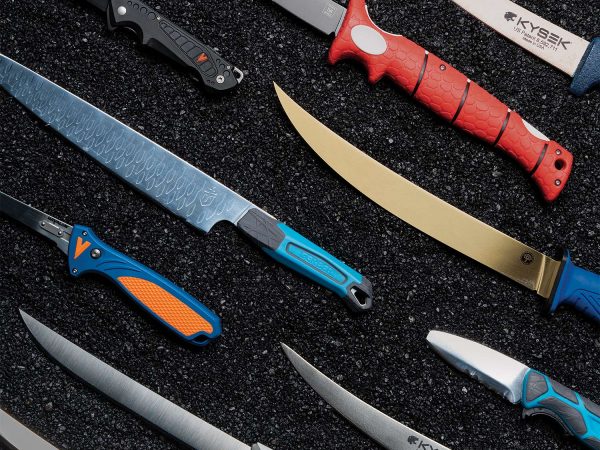18
Oct

Are you getting ready to go on a weekend fishing trip? How exciting! You should absolutely make a fishing trip packing list before you go to make sure you make the best out of it. This way, you can be confident that you have everything you need to create wonderful new fishing memories on the river or sea.
Simply save and print this list, then check off each item as you pack it. Keep in mind that this is a sample fishing gear list. Different items or additional items may be needed depending on the destination and duration of your trip.
Bring a multi-tool with you for cutting lines, sharpening hooks, and a variety of other tasks. While a long fixed or folding knife can be used to fillet a fish, reliable corrosion-resistant fishing knives will make the operation easier and produce cleaner, more exact cuts. Fillet knives are not as versatile as other fishing knives, but they significantly improve your ability to fillet.
If you intend to fish without a guide or captain, determine whether you will need saltwater fishing rods and reels for your fishing excursion.
Something to attract the attention of the fish should be included in your tackle box or bait well. Artificial lures include flies, spinners, plugs, spoons, and other items that are designed to attract them by mimicking their prey’s movements, vibrations, or colours. Bait can also be utilised in this manner. If you’re trying to decide between the two, it’s a good idea to go to a local bait shop and see what bait they have in season, either to stock up or to figure out which fake choice would best mimic them.
In addition to acquiring neat fishing knives you’ll also need these to remove hooks, adjust lures, and do a variety of other things. Bring a pair that are corrosion-resistant and keep them in a sheath.
Make sure you have enough fishing lines on hand in case you need to re-rig. The type of line you select will depend on where you wish to fish, the method you intend to use, and the exact fish species you desire to target.
If you’re fishing without a guide or captain, you’ll need to pack a tackle box with hooks of various sizes, sinkers, bobbers or floats, lures, a de-hooker, swivels, leader material, and scissors.
Long pants will give you better protection from insects and the sun than shorts. Choose lightweight, moisture-wicking, or breathable pants.
Add a wide-brimmed hat to your fishing vacation packing list so you can protect your face and eyes from the sun.
Mornings and evenings on the water can get chilly. Be prepared by dressing in layers that you can remove as the day progresses and temperatures rise. And if you get wet or it’s a warm day, you’ll appreciate having a fresh set of dry clothes to change into afterwards.
Weather can change quickly, so be prepared with complete rain gear (jacket and pants) or at the very least a rain jacket.
Leave the flip-flops and sandals at home. Choose non-skid, non-marking shoes designed for use on a boat if that’s where you’re going.
While fishing, place your fishing licence in a small waterproof dry bag for quick access and keep it in your backpack or tackle box. If you don’t already have a fishing licence for the state where you want to fish, you can get one online right now.
If you want to go fishing in a rural area or an unfamiliar location, a GPS will help you find your way back to your fishing lodge or campsite.
Pack a first-aid kit with antibiotic ointment, bandages, tweezers, antiseptic wipes, aspirin, gauze pads, cloth tape, non-latex gloves, and a blanket.
Polarized sunglasses will not only shield your eyes from the sun, but they will also help you find fish by cutting through the glare on the water.
Bring a UVA/UVB broad-spectrum sunscreen or sunblock with you, preferably one that is waterproof. The sun’s beams can be intense by the water even on cloudy days.
Always have bug spray to keep pests like mosquitoes, gnats, and ticks at bay. If you’re going on a fishing trip with a guide or charter skipper, you should ask them for a product recommendation that works well in the location or environment you’ll be fishing in.
Use a waterproof bag to protect your camera, cell phone, and other valuables.
Bring a cooler to store your catch (assuming it’s legal and you intend to eat it) and keep bottled water cold.
You’ll need to stay hydrated and have plenty of energy. Bring lots of water and non-perishable snacks like almonds, beef jerky, or granola bars with you.